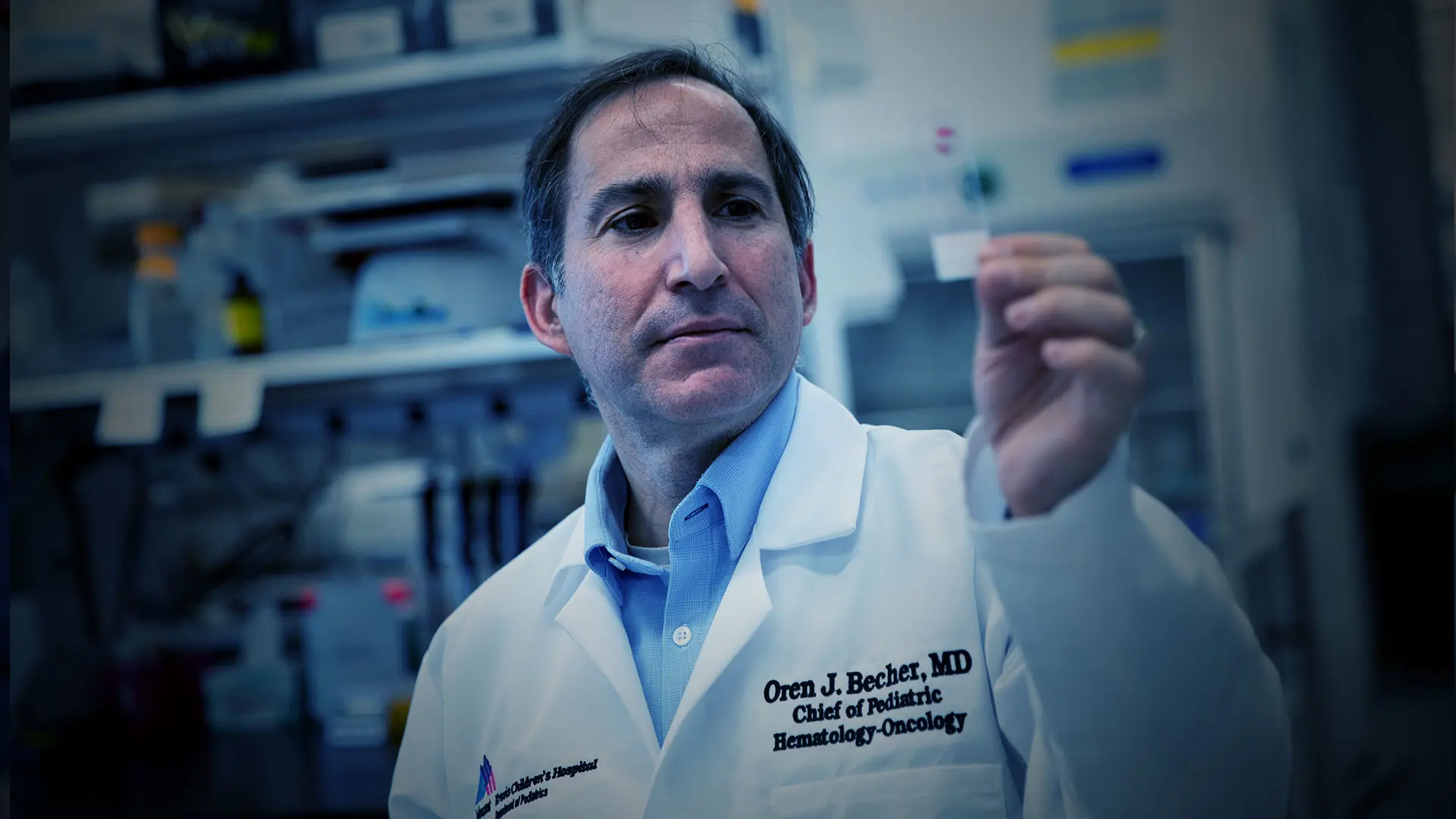Oren J. Becher, MD, was recently named Chief of the Jack Martin Division of Pediatric Hematology-Oncology, the Steven Ravitch Chair in Pediatric Hematology, and Professor of Pediatrics at the Icahn School of Medicine at Mount Sinai. A physician-scientist, Dr. Becher is an expert in brain tumors in children, particularly diffuse intrinsic pontine glioma (DIPG), an incurable pediatric brain cancer. For more than a decade, his research has focused on identifying therapeutic targets to treat DIPG.
“It is my honor to join the Mount Sinai family and the outstanding collaborative environment here. Mount Sinai’s strengths in neuroscience, genomics, and cancer research will provide a fertile ground for the development of innovative clinical trials for children with cancer and hematological diseases,” says Dr. Becher.
He joins Mount Sinai from the Northwestern University School of Medicine, where, in addition to appointments in the Department of Pediatrics and the Department of Biochemistry and Molecular Genetics, he also maintained clinical responsibilities at Ann & Robert H. Lurie Children's Hospital of Chicago.
Dr. Becher has contributed to some of the seminal discoveries in the DIPG field since he began studying this puzzling cancer in 2008. In addition to studying the function of the genetic alterations present in DIPG, Dr. Becher’s laboratory co-discovered the presence of somatic activating mutations in a gene not previously implicated in cancer, called ACVR1 or ALK2, in 25 percent of children with DIPG, and subsequently developed genetically engineered mouse models that recapitulate the genetic alterations of the human disease. This work suggests that ACVR1 may be a new avenue for the treatment of DIPG, but more research is needed. Additionally, Dr. Becher’s laboratory has expanded efforts to develop models for other pediatric brain cancer subtypes and is using these models to study the tumor microenvironment and to evaluate novel therapeutics that help prioritize clinical trials for children with brain cancer.
“For more than 10 years, my research has focused on DIPG exclusively. I was drawn to this area because we have no cure and there are very few dedicated DIPG researchers to do the rigorous science that is needed to understand these tumors,” says Dr. Becher. “While my lab at Mount Sinai will continue to focus on DIPG, I am excited by the prospect of building up the division. We are in a fast-moving period in pediatric hematology-oncology, where genomics is playing an increasing role for both diagnostics and therapeutics. This will be my focus at Icahn Mount Sinai.”
Dr. Becher has already spearheaded collaboration with Praveen Raju, MD, PhD, Associate Professor of Pediatric Neurology, and Neuroscience, and The Friedman Brain Institute and The Tisch Cancer Institute. With these teams working together, Mount Sinai Kravis Children’s Hospital will focus on enhancing our pediatric brain tumor research, anticipating opening many new clinical trials in the near future.
Why vote for Mount Sinai Kravis Children's Hospital in U.S. News & World Report’s Best Children’s Hospital rankings?
We specialize in providing outstanding and comprehensive family-centered care to all pediatric patients with cancer and blood disorders. The team aspires to have all patients grow up and accomplish their dreams in life.
We are a member of the Children’s Oncology Group, the Pediatric Blood and Marrow Transplant Consortium, and the North American Consortium for Histiocytosis.
Our multidisciplinary team includes pediatric hematologists/oncologists, nurse practitioners, social workers, psychologists, and child life specialists (including the adorable facility dogs, Professor, Amos, and Moby).
We partner with many local and national organizations to enrich the lives of our patients and their families, such as Make-A-Wish.
Our NIH-funded laboratories study the biology of pediatric brain cancers to identify more effective and less toxic therapies.
